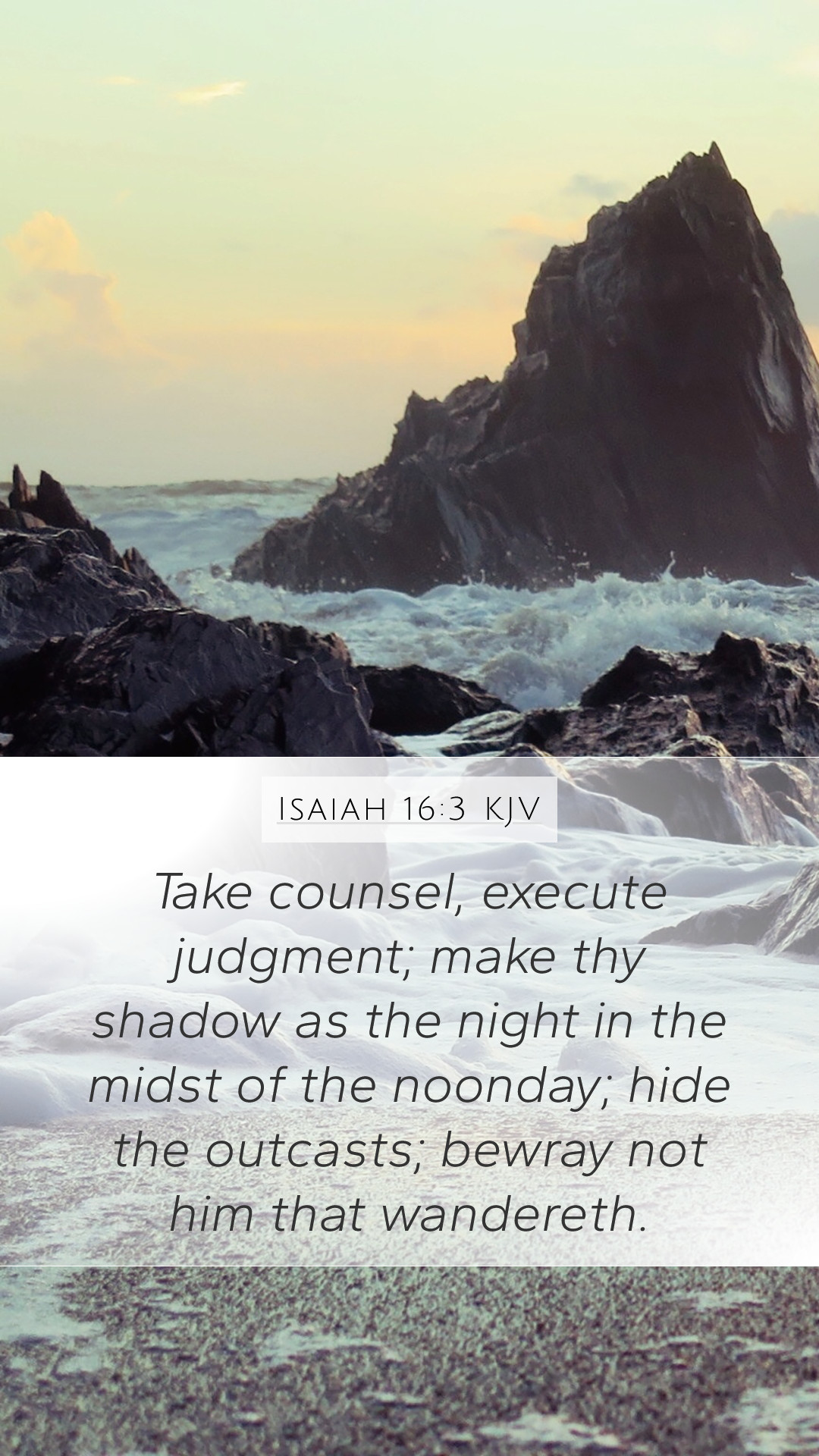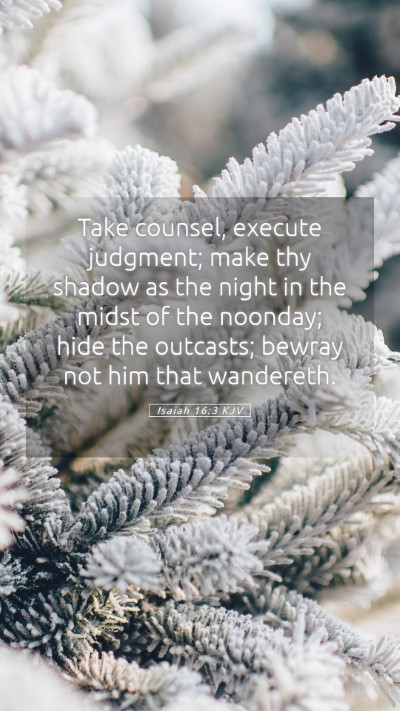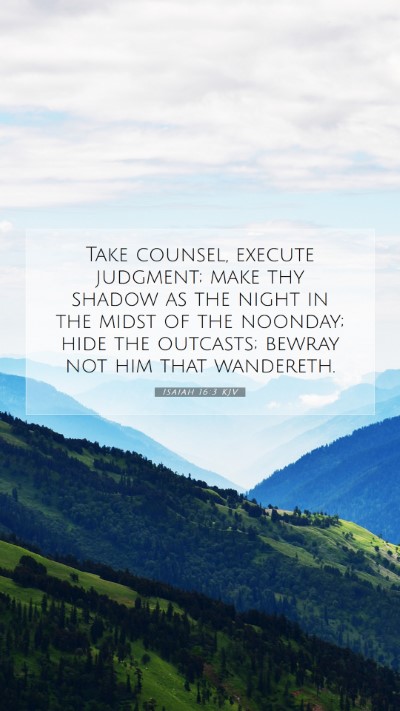Bible Verse Commentary: Isaiah 16:3
The verse Isaiah 16:3 states, "Take counsel, execute judgment; make thy shadow as the night in the midst of the noonday; hide the outcasts; bewray not him that wandereth." This passage carries profound significance, calling for compassion and astuteness in a time of crisis. Here, we provide an amalgamation of insights from various public domain commentaries, including thoughts from Matthew Henry, Albert Barnes, and Adam Clarke.
Understanding the Context
In the context of Isaiah, the Israelites are facing upheaval and distress. The chapter pertains to a prophecy concerning Moab, whom God is instructing. This calls for an examination of the historical and prophetic contexts, where Moab is depicted as a people under oppression.
Bible Verse Interpretations
- Call to Wisdom: The phrase "Take counsel" suggests a necessity for seeking wise advice and understanding the gravity of the situation. Isaiah urges the leaders and officials to engage in rational thought and to act judiciously.
- Executing Judgment: The call to "execute judgment" emphasizes the need for fairness and justice in leadership. It highlights the importance of moral responsibility, particularly in the face of those in need.
- Symbolism of Shadow: "Make thy shadow as the night in the midst of the noonday" is rich in imagery. The shadow symbolizes protection and comfort, suggesting that the leaders should create an environment of safety and refuge for those who are vulnerable.
- Compassion for the Outcasts: The directive to "hide the outcasts" underscores a powerful message of mercy. It resonates with the ongoing biblical theme of caring for the marginalized and those who find themselves wandering—both physically and spiritually.
- Discretion in Governance: The phrase "bewray not him that wandereth" teaches the value of discretion. This instructs the leaders to protect the identity and dignity of the vulnerable rather than exposing them to harm.
Insights from Commentaries
According to Matthew Henry, this verse illustrates the essence of meekness and the critical nature of wise governmental leadership, especially during times of distress. He emphasizes that true leadership must embody these virtues.
Albert Barnes expands on the importance of this passage by underscoring that leaders are to create an atmosphere of shelter, representing God’s care. He interprets the shadow metaphor as a powerful image of divine protection.
Adam Clarke reflects that the concept of hiding others aligns with the biblical call to shelter the oppressed while also exercising wisdom in judgment. Clarke furthers the idea of ensuring that the plight of the wanderers is met with sensitivity and grace.
Applying Isaiah 16:3 to Daily Life
This verse encapsulates vital principles that can be applied in today's context. Here are some applications:
- Promoting Justice: Individuals are called to be instruments of justice in their communities, advocating for fairness and equity.
- Providing Refuge: Emulate the call to be a protector of the weak and the marginalized in society.
- Diligent in Counsel: Seek counsel within community and faith engagements, utilizing the resources available through bible study groups and bible study lessons.
Related Scripture References
- Deuteronomy 10:18 - God’s care for the fatherless and widow.
- Psalm 146:9 - The Lord protects the sojourners.
- James 1:27 - Pure religion before God includes caring for orphans and widows.
Conclusion
In conclusion, Isaiah 16:3 provides invaluable insights into the qualities that define effective leadership and the responsibility we have towards those in distress. The rich interpretations and applications derived from this verse assist greatly in understanding Scripture as a whole.


